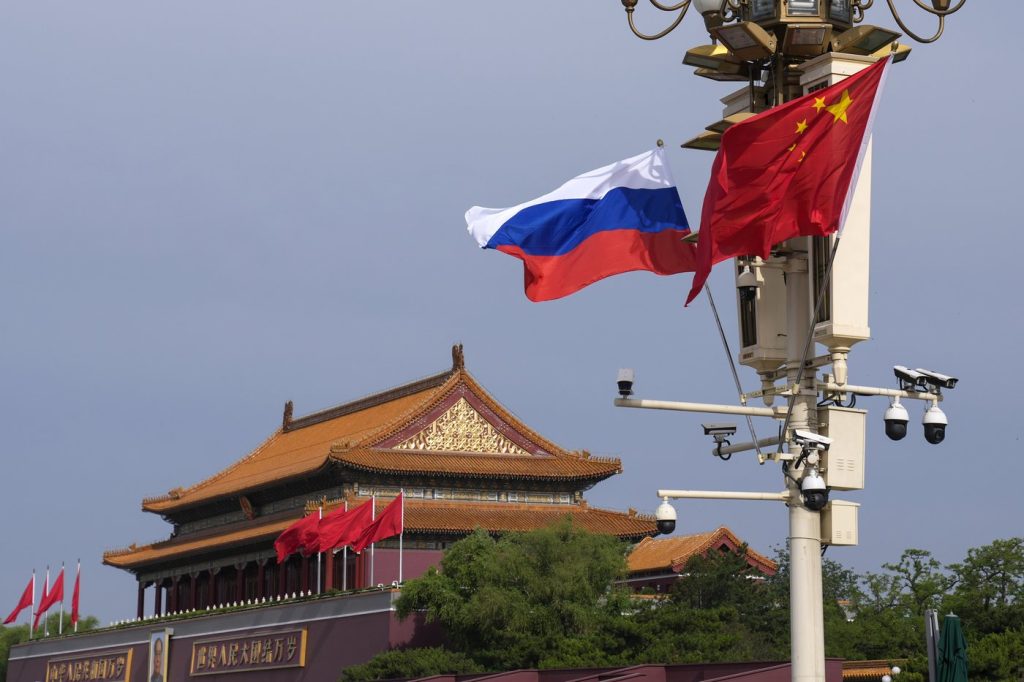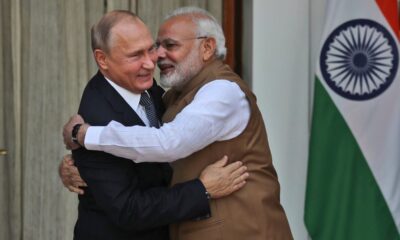Top Stories
China Defies US Oil Demands Amid Trade Talks; Tariff Threats Loom

UPDATE: China has firmly rejected U.S. demands to cease oil purchases from Iran and Russia, escalating tensions amid ongoing trade negotiations. The Chinese Foreign Ministry stated on X, “China will always ensure its energy supply in ways that serve our national interests,” following talks in Stockholm that began on November 1, 2023.
This development comes as U.S. officials, led by Treasury Secretary Scott Bessent, threaten a staggering 100% tariff if China continues its imports from these nations. Bessent remarked, “The Chinese take their sovereignty very seriously,” indicating a strong pushback from Beijing against perceived coercion.
China’s commitment to securing oil from Iran, which supplies over 1 million barrels daily, is critical for its economy. The U.S. aims to cut off revenue streams to Iran and Russia amid ongoing military conflicts, especially as Iran supports militant activities across the Middle East and Russia intensifies its aggression in Ukraine.
China’s Response: The Chinese government’s statement highlights its intent to uphold its energy requirements, emphasizing that “coercion and pressuring will not achieve anything.” This assertive stance reflects China’s broader strategy to maintain sovereignty while navigating complex international relations.
During the talks, Bessent acknowledged the negotiation challenges and noted that despite the pushback, progress towards a potential deal is still possible. He stated, “I believe we have the makings of a deal,” while recognizing China’s tough negotiation tactics.
Experts believe that President Donald Trump is hesitant to impose the threatened tariffs, fearing they could derail recent diplomatic advancements. Gabriel Wildau, a managing director at Teneo, warned that executing such threats could obliterate any chance for a trade agreement during a potential meeting with Chinese President Xi Jinping later this fall.
China’s reliance on Iranian and Russian oil, combined with the U.S.’s geopolitical objectives, complicates the situation further. In April 2023, China’s imports of Russian oil surged by 20%, reaching levels that make it a crucial player in the global energy market.
As trade negotiations continue, the broader implications for U.S.-China relations remain uncertain. Danny Russel of the Asia Society noted that China views itself as “the one holding the cards in its struggle with Washington,” suggesting that Beijing may leverage its energy imports as a bargaining chip.
With Congress also weighing in, Senator Lindsey Graham has introduced legislation proposing tariffs as high as 500% on countries purchasing oil from Russia. Graham emphasized the need to disrupt financial support for the Kremlin’s military actions.
As the situation evolves, the international community watches closely. The U.S.’s approach to sanctions and tariffs may shift based on how both nations navigate these critical negotiations. The coming days will be pivotal, with potential ramifications for global oil markets and international trade dynamics.
Stay tuned for more updates as this story develops.
-

 Politics4 weeks ago
Politics4 weeks agoSecwepemc First Nation Seeks Aboriginal Title Over Kamloops Area
-

 World5 months ago
World5 months agoScientists Unearth Ancient Antarctic Ice to Unlock Climate Secrets
-

 Entertainment5 months ago
Entertainment5 months agoTrump and McCormick to Announce $70 Billion Energy Investments
-

 Science5 months ago
Science5 months agoFour Astronauts Return to Earth After International Space Station Mission
-

 Lifestyle5 months ago
Lifestyle5 months agoTransLink Launches Food Truck Program to Boost Revenue in Vancouver
-

 Technology3 months ago
Technology3 months agoApple Notes Enhances Functionality with Markdown Support in macOS 26
-

 Lifestyle3 months ago
Lifestyle3 months agoManitoba’s Burger Champion Shines Again Amid Dining Innovations
-

 Top Stories2 months ago
Top Stories2 months agoUrgent Update: Fatal Crash on Highway 99 Claims Life of Pitt Meadows Man
-

 Politics4 months ago
Politics4 months agoUkrainian Tennis Star Elina Svitolina Faces Death Threats Online
-

 Sports5 months ago
Sports5 months agoSearch Underway for Missing Hunter Amid Hokkaido Bear Emergency
-

 Politics5 months ago
Politics5 months agoCarney Engages First Nations Leaders at Development Law Summit
-

 Technology5 months ago
Technology5 months agoFrosthaven Launches Early Access on July 31, 2025




















